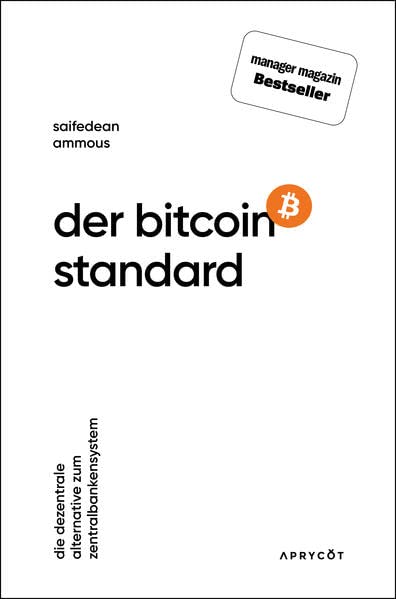The Bitcoin Standard - the unobjective non-fiction book
A mini review
Many Bitcoin and crypto supporters like to refer to the book "The Bitcoin Standard: The Decentralized Alternative to Central Banking" in arguments. I myself, invested in Bitcoin since 2011 and later in various other cryptocurrencies, never read this "standard work" - until I decided to fill this educational gap a few weeks ago. I don't want to repeat or evaluate the content here at all. Rather, I want to help potential readers decide whether it's worth reading or you can save it.
In essence, three topics treated:
- The history of money
- What makes good money?
- Bitcoin
The author describes the rise and fall of various currencies over time. In doing so, he elaborates why currencies always go down, what conditions must be met so that this does not happen or can be delayed, and why gold, unlike all other "forms of money," has served as a store of value for thousands of years.
Then, before dealing with the actual topic, bitcoin, the author settles the score with Keynesianism, a common theory on macroeconomics. He argues why an inflationary currency controlled by the state is not necessary for growth and prosperity, but even harmful, and why it was a mistake to abandon the gold standard.
In the bitcoin section, a few technical topics are discussed in a reasonably superficial way. For example, the security of Bitcoin or a comparison to altcoins. However, the focus is clearly on the properties that make Bitcoin a good gold substitute but not necessarily ideal for processing micro-transactions. Bitcoin is thus considered in an economic context. Problems that stand in the way of Bitcoin's acceptance (e.g., lack of user-friendliness or transaction costs/speed for small transactions) are highlighted and solutions are presented. It is interesting to note that the author continues to suggest the management of the coins by third parties (banks) as a possible solution to these problems. The added value is thus clearly seen as a reserve currency and in the replacement of gold. Less as a P2P solution and in anonymity.
Why I almost did not finish reading the book
Unfortunately, the book has a huge problem, which is why I called it "the nonfiction book that is not factual" in the title: The author has a very entrenched opinion of Keynesianism and its founder, John Maynard Keynes. Instead of dealing objectively with Keynes and his theory, the latter is insulted and defamed. In addition, the author shares his negative opinion on topics that have nothing to do with the title and attributes them to Keynesianism. For example, in his opinion, Keynesianism is to blame for the decline of art. Regardless of whether these accusations are justified or not, the way they are handled is not worthy of a nonfiction book. Unfortunately, the way it is expressed casts doubt on the author's seriousness.
To whom I recommend the book
Apart from the author's derailments just described, the book allows a slightly different perspective on the topic for different groups of people. On the one hand, of course, for owners of cryptocurrencies who have so far focused more on technical aspects, smart contracts or anonymity in their investments. This group is probably particularly receptive to the author's explanations and should - unless there is a significant education in economics - necessarily also deal with the opposite side. The same applies to newcomers who have not really dealt with cryptocurrencies yet. Crypto skeptics get a good insight from the book without being overwhelmed with technical terms. Economists who hold the opinion that only a state-created and managed inflationary money enables growth, the book shows an alternative.
All in all, the work is quite nice and offers a different perspective on Bitcoin than most Bitcoin disciples provide. Reading it is not wasted time, but will not be a life-changing moment for many either.
Consumed the April 2021 German version as an audiobook (ASIN: B092VR371S).
#bitcoin
#buch
#review
#esel
#crypto










